What Happens When All We Have Left Is the Pentagon?
If your military is the only well-funded, well-stocked arm of the government, it’s obvious whom you’re going to turn to in any crisis. Sebastian Dooris / Public Domain
1
2
3
Sebastian Dooris / Public Domain
1
2
3
To be fair, the drift toward military dominance of foreign policy began well before Barack Obama took office. In her 2003 book The Mission, Dana Priest of the Washington Post described the increasing role of regional combatant commanders in shaping policymaking in Washington. They could leverage their greater resources and close connections to foreign leaders to outstrip U.S. ambassadors in power and influence. And their growing role was just a symptom of a larger problem that Priest described at the time and that has only become more obvious in the years since: the urge of American leaders to turn to the military for solutions to problems “that are often, at their root, political and economic.” As retired General Anthony Zinni, former head of the U.S. Central Command, noted for instance, “There is no military solution to terrorism.” That’s a conclusion shared by other American military leaders, but one that has had little effect on U.S. efforts to use force as the primary tool for combatting terrorism in countries like Iraq, Afghanistan, Somalia, and Yemen, a process that has only led to more failed and failing states and the further spread of terror groups.
Donald Trump may indeed gut the diplomatic corps, but don’t forget that State Department funding was long ago overwhelmed by the largesse available to what the new president regularly refers to as our “depleted” military. The Pentagon’s budget is today more than 12 times as large as the State Department’s, a disparity sure to grow in the years to come. As former Defense Secretary Robert Gates noted some years ago, there are more military personnel stationed on one aircraft carrier task force than trained diplomats in the U.S. Foreign Service. And keep in mind that the United States currently has 10 active aircraft carriers, which themselves will be just a small part of the Trump administration’s proposed 350-ship Navy.
Even the intelligence community is likely to be further militarized in the Trump years. While he was head of the Defense Intelligence Agency (DIA), National Security Advisor Michael Flynn tried to increase its influence at the expense of the CIA. Expect him to attempt to seize control of the nation’s intelligence apparatus and put it in service to his own distorted view of the world. From failing to predict the collapse of the Soviet Union to allowing itself to be used to put forward misleading information about Saddam Hussein’s alleged possession of weapons of mass destruction, the U.S. Intelligence Community has hardly covered itself in glory. Still, it does contain a cadre of professional analysts who can provide sitting presidents with actual information contradicting prevailing prejudices. This was even true in the case of Iraq, where a number of analysts dissented from the claim that Iraq had nuclear weapons, while others only acquiesced after being browbeaten by Vice President Dick Cheney and the band of neoconservatives in his office.
In the years to come, expect the Cheney model of intelligence manufacturing to be replicated, especially by Flynn, whose extreme views include a belief that Islam is not a real religion, that Iran is the “linchpin” of a global anti-American coalition of enemies extending from Cuba and Venezuela to North Korea, China, and Russia, and that Islamic “Sharia law” is actually being imposed in parts of our country. Flynn’s views on Islam would have been beyond the pale for a top adviser in any prior administration. Now, however, he’s positioned to regularly press his views on Donald Trump, who doesn’t read and seems inclined to believe the last person he talks to.
A Military-First Administration
To imagine how Flynn might wield his new power, consider his attempt, while still at the DIA, to get subordinates to prove that Iran was the “hidden hand” behind the 2012 attacks on the U.S. compound in Benghazi, Libya, that resulted in the death of Ambassador J. Christopher Stephens. As the New York Times reported, “Like many other investigations into Benghazi, theirs found no evidence of any links, and the general’s stubborn insistence reminded some officials at the agency of how the Bush administration had once relentlessly sought to connect Saddam Hussein and Iraq to the Sept. 11, 2001, attacks.”
Trump and his men now seem poised to purge the CIA and other intelligence agencies of analysts who might have opinions contrary to their own fantasy view of the world. Expect Flynn, in particular, to try to shape the intelligence community’s products towards his ends while serving as interpreter of last resort for the president. Getting Trump to swallow intelligence assessments skewed toward his particular set of prejudices and inclinations should be an easy feat, given that he can’t even acknowledge the size of the crowd at his own inauguration or let go of the demonstrably false claim that millions of undocumented immigrants voted illegally in the 2016 election.
Your support matters…Independent journalism is under threat and overshadowed by heavily funded mainstream media.
You can help level the playing field. Become a member.
Your tax-deductible contribution keeps us digging beneath the headlines to give you thought-provoking, investigative reporting and analysis that unearths what's really happening- without compromise.
Give today to support our courageous, independent journalists.


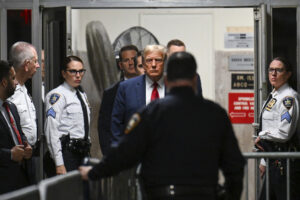
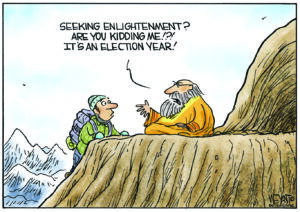
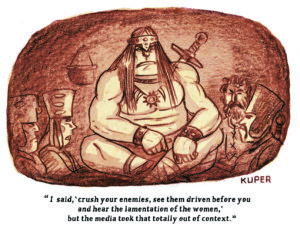
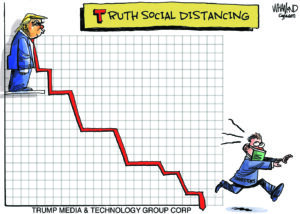
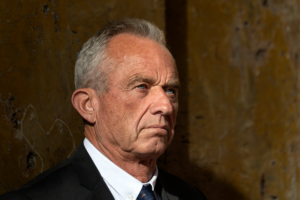


You need to be a supporter to comment.
There are currently no responses to this article.
Be the first to respond.